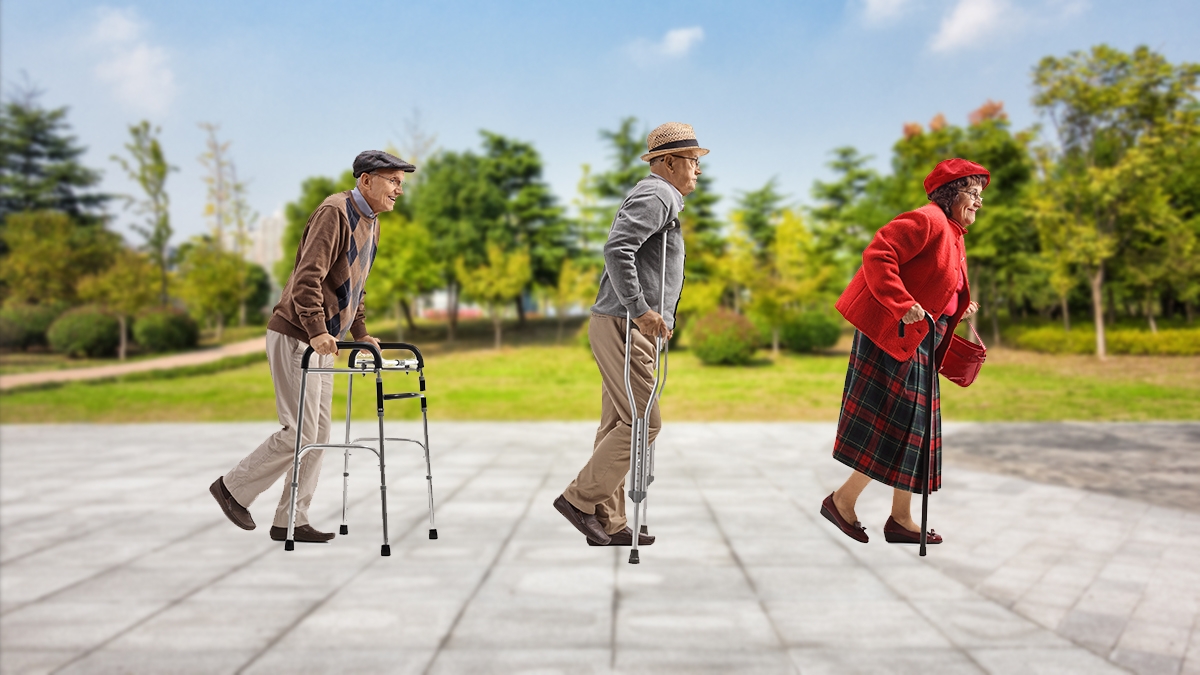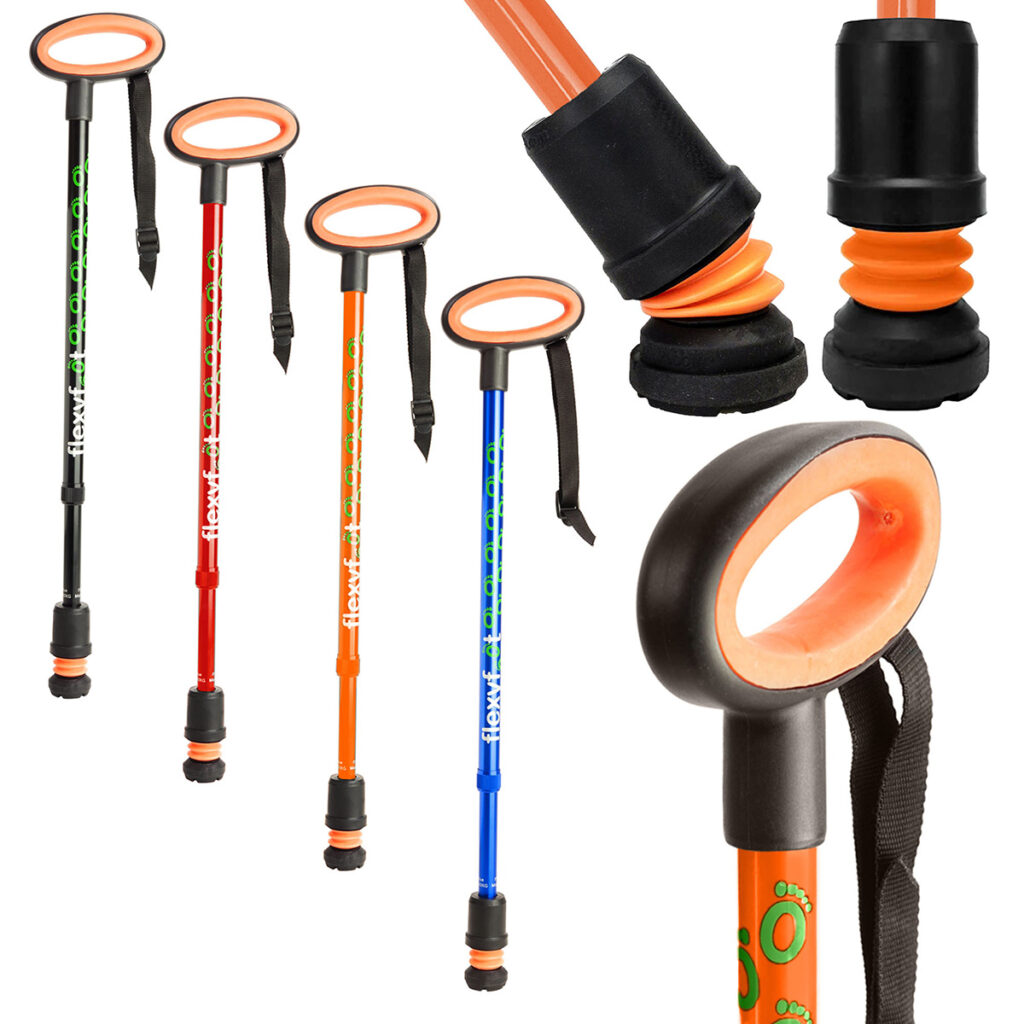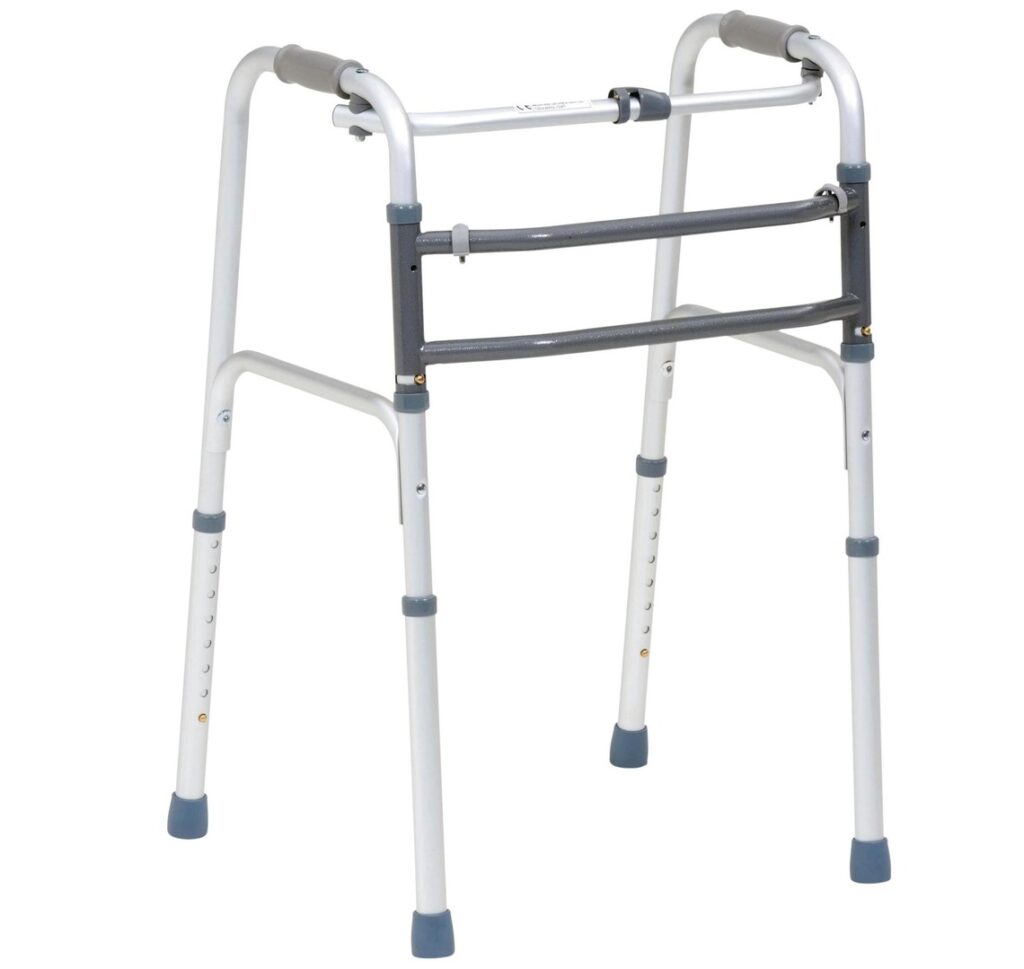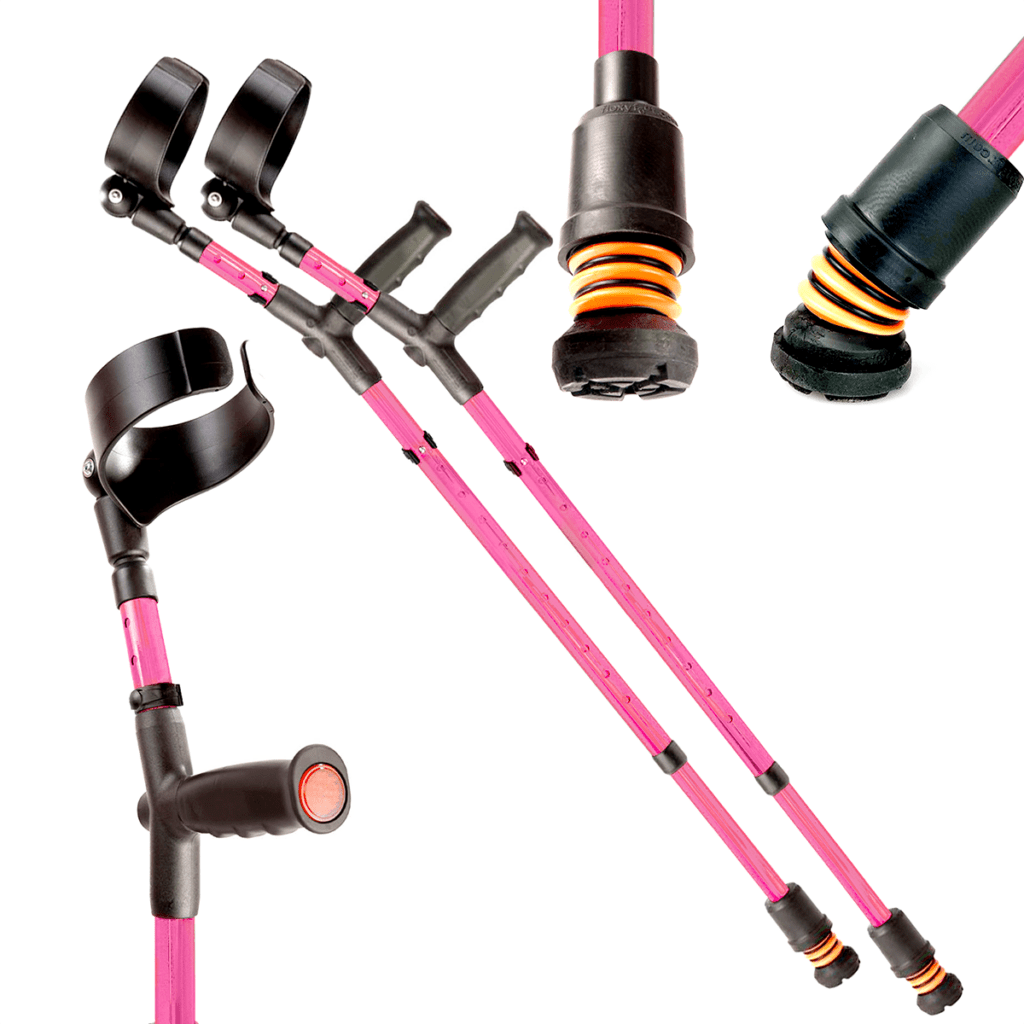Introduction
As we age, maintaining our mobility becomes increasingly important to ensure a good quality of life. For some older adults, this may mean using walking aids to help maintain balance, reduce pain or discomfort, and prevent falls. In this blog post, we will discuss various types of walking aids available for the elderly and how they can be beneficial in promoting independence and safety.
Types of Walking Aids for the Elderly
Walking Canes
Walking canes are one of the simplest and most common walking aids used by seniors. They provide additional support while walking by redistributing weight from a lower leg that is weak or painful due to injury or medical conditions like arthritis. Canes come in different styles such as single-point canes, quad canes with four points at the base for increased stability, and offset handle canes designed to distribute weight more evenly across the wrist. Recently, manufacturers such as Flexyfoot have been innovating walking cane designs to provide a better array of options, such as the oval-shaped soft grip handle, which helps spread the impact more evenly when the stick hits the ground, reducing the stress being put on the joints.
Walkers
Walkers offer more support than canes as they have four legs that provide greater stability when standing or walking. Standard walkers require users to lift them slightly while taking each step which helps improve balance but may not be suitable for those with limited upper body strength. Rollator walkers are equipped with four wheels making it easier to move around without lifting the walker off the ground. Some models also feature seats allowing users to take breaks whenever needed. Alternatively, Tri-walkers are a lighter alternative to rollators, which are easier to transport and can get around smaller spaces while still being supportive.
Crutches
Crutches are primarily used by individuals who need temporary assistance due to an injury such as a broken leg; however, they may also benefit seniors who require significant weight-bearing assistance on one side of their body due to weakness or pain. Like with the canes, crutches are available from British manufacturer, Flexyfoot, who have developed adjustable, soft grip versions, which can help for periods of prolonged use. Alternatively, you can get crutch grips for your existing crutched, which are developed as impact absorbing covers for standard crutch handles that retrofit on to the original handles. if required, bariatric crutches are available.
For further information regarding mobility aids, visit our website to see more details regarding each product we supply. If you require further support and advice, feel free to contact your local GP, who will be able to direct you to a clinically trained advisor that could help you.




